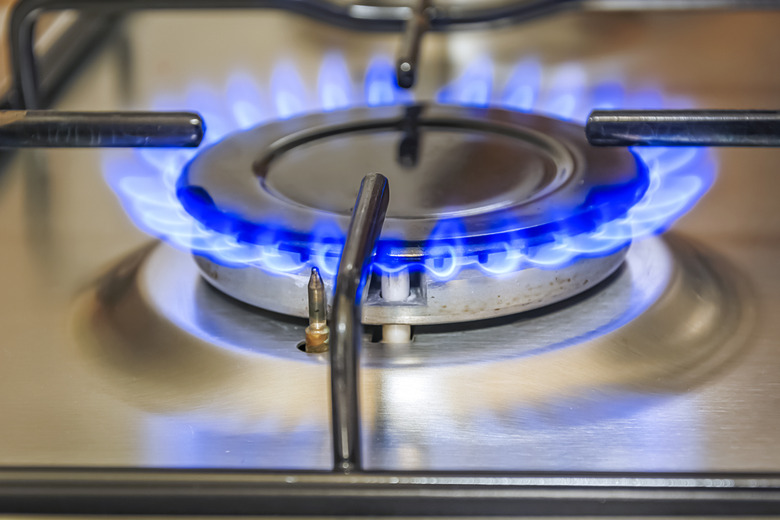List Of Appliances That Run On Natural Gas
Natural-gas appliances were the norm before electric appliances. Gas appliances require an electrical outlet for power, but they use natural gas to provide heat. If you want to use gas appliances, your home needs a gas line. Adding a gas line to an existing home might present a challenge or cost more than you want to pay. Contact your local gas company to discuss your options in detail.
Cooking With Gas Appliances
Cooking With Gas Appliances
Natural-gas ovens, cooktops and ranges are good for cooking because they provide precise and instant heat. When cooking with an electric appliance, you have to wait for the coils to get hot. Once the coils are hot, you have less control over the power of the heat than with gas.
You can choose several settings between low and high, but you never know exactly which setting provides the best heat for what you are cooking. Gas cooking appliances remove the guesswork because you see the flame and can judge how low or high to make the flame for the desired heat. You save energy as well because the flame goes out as soon as its turned off.
Laundry and Water Appliances
Laundry and Water Appliances
Natural-gas dryers and water heaters provide all the heat for your laundry needs. Gas dryers output heat at higher temperatures and dry clothes faster than electric dryers. Your clothes also last longer because they tumble less in a natural-gas dryer.
It's also possible to use a natural-gas water heater to supply your washing machine with water. A natural-gas water heater gets water hot faster than an electric model. As a result, you can wash more loads without depriving the rest of your house of hot water.
Home Heating and Other Appliances
Home Heating and Other Appliances
Natural-gas heaters keep your home warm and cozy. In addition to natural-gas space heaters, you can heat your entire home with a natural-gas furnace. A natural gas furnace also provides air that is slightly warmer than the air provided by an electric heat pump.
The furnace also requires less energy and heats your home faster when compared to an electric-heat pump model. Natural-gas heaters are reputed to be more efficient for home use because they last longer, cost less to operate and don't require tank refills like propane or oil.
Other appliances, like natural gas refrigerators, are also very efficient and may be a good choice if you already have natural gas hooked up to your home. If you were to list 10 uses of natural gas, it's likely that a refrigerator would be among them, though it might not be something that jumps to mind immediately.
Natural Gas Safety Concerns
Natural Gas Safety Concerns
Natural gas is clean and efficient, according to the International Gas Union. It's also usually safe, but potential problems do exist. For example, if a natural-gas furnace isn't installed correctly, it can cause a buildup of carbon monoxide in the home. According to the Ohio Public Utilities Commission, carbon monoxide is an odorless, colorless gas that can lead to death.
You should install a carbon-monoxide detector if you have a natural gas furnace or space heater. You should also have your gas appliances checked yearly to make sure they're in good condition.
Gas lines can occasionally leak as well. If you suddenly smell an odor like rotten eggs in your home, it probably means you have a leak in your gas line; leave the home and contact your gas provider.
